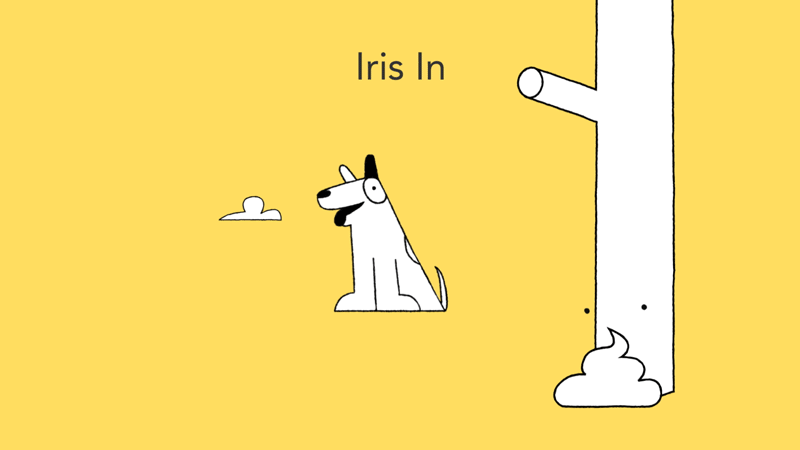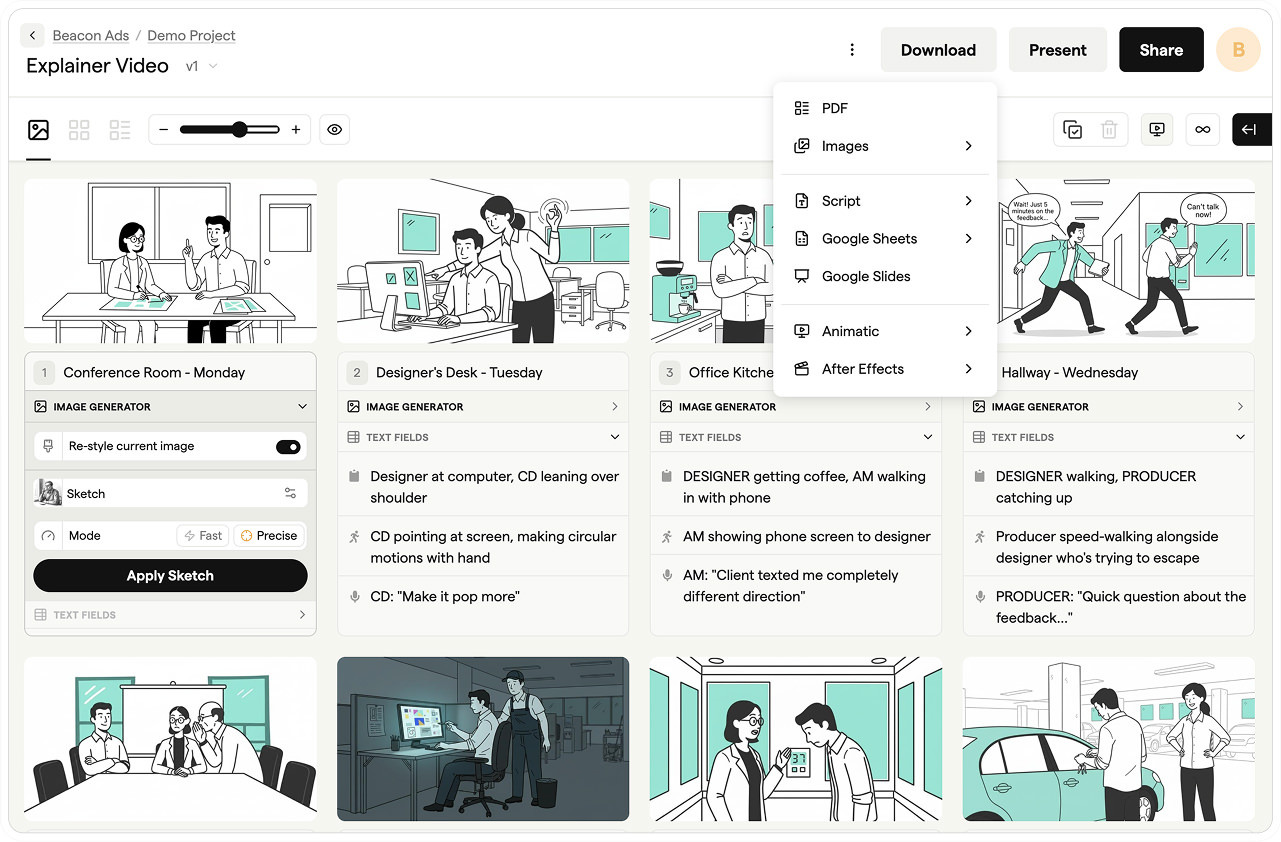The 9 Essential Video Transition Effects

- Fade In
- Fade Out
- Wash Out
- Cross Dissolve
- Ripple Dissolve
- Jump Cut
- Cutaway
- Iris In
- Iris Out
- Editing Software
Video transitions are a staple of video editing and motion graphics. Also known as transition effects, they are used to move from one shot to the next. Transitions can be a simple ‘cut’, or much more complex.
Boords is storyboarding software built for studios & agencies
Create consistent storyboards fast, iterate quickly, then share for feedback.
Try Boords FreeAdding knowledge of transitions to your video editing vocabulary will make you a better filmmaker. We’ve assembled examples of the most common transitions - ably demonstrated by Pencil the dog - to show you the basics.
Fades
Fades are the building blocks of many other transitions. Subtle to the point of almost being invisible, effective use of Fades is a key skill in your video editing toolkit.
Fade In

During a Fade In transition the shot gradually becomes visible. Helpful in giving the viewer time to take in an image, Fade In transitions are often used to start a film or set the scene.
Fade Out

During a Fade Out transition, the shot starts at full brightness and gradually becomes invisible. Using the Fade In and Fade Out together is an effective way of conveying the passage of time. The stock transition for the end of a scene.
Wash Out

Similar to the Fade Out transition, but fading to white rather than black.
Dissolves
Building on Fades, Dissolve transitions gradually replace one image with another, but often with more artistic flair. With this power comes responsibility, and complex Dissolve transitions should only be used to aid in story-telling.
Cross Dissolve

Effectively a combination of Fade In and Fade Out, a Cross Dissolve gradually replaces one shot with another. This transition is often used to imply a passage of time or a change of location.
Ripple Dissolve

Perfect for a dream sequence. Ripple Dissolve is similar to a Cross Dissolve in that one shot is gradually replaced by another but it makes use of a ‘Ripple’ filter which gives a dream-like quality to the transition. Use sparingly.
Cuts
The most abrupt of transitions. Cuts are characterised by the content of the two shots rather than the style of the transition itself. A Cut transition replaces one shot with another. In this way, they could be considered more of a direction technique, rather than a transition. Nonetheless, let’s investigate.
Jump Cut

In a Jump Cut transition, the subject appears to ‘jump’ from one location to another. It’s often used create the impression of time passing.
Cutaway

A Cutaway transition involves cutting to a secondary (but related) shot which is separate from the main action. It can be used to show action in two different locations, or in a conversation to show both the speaker and listener.
Wipes
Wipe transitions replace one shot with another through animation. A Clock Wipe, for example, uses a circular motion like the hands of a clock to show the second shot. As with Dissolves, Wipe transitions grab attention and should only be used with good reason.
Iris In

Used at the beginning of a scene, the Iris In shows a small, circular area of the shot before expanding out to reveal the entire frame. Used everywhere from Tom & Jerry to The Departed.
Iris Out

More theatrical than a Fade Out transition, an Iris Out transition is used indicate the end of a story by animating a contracting circle inward from the edge of the frame. It’s like a spotlight focussing on one area of the shot.
A note on editing software
The video editing software landscape is dominated by two players; Adobe Premiere Pro and Apple's Final Cut Pro. Both are incredibly comprehensive video editors which will enable you to create video transitions and much more besides. If you work in motion graphics, Adobe After Effects is the industry standard.
Get your FREE Filmmaking Storyboard Template Bundle
Plan your film with 10 professionally designed storyboard templates as ready-to-use PDFs.

Using transitions in your work
Transitions are a powerful video editing and direction tool. Keep an eye out for transitions while watching moving image; how is the director using them? What feeling are they conveying? Become a student of transitions and you'll soon be a dab-hand.


